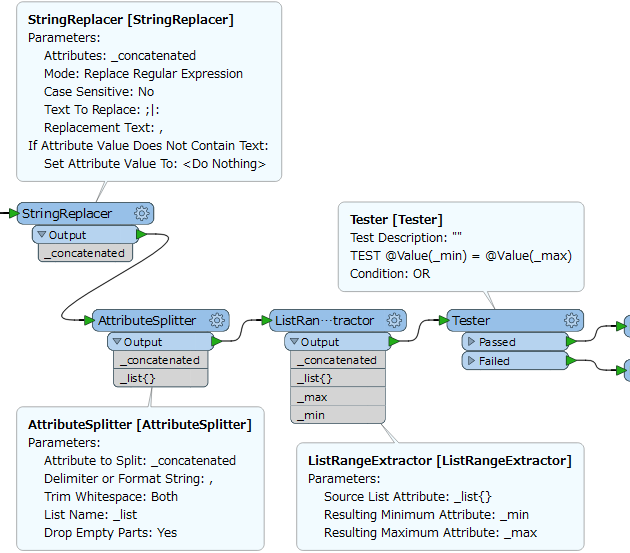Hi,
Can i use a testfilter on a concatenated field?
For example
record1 = concatenated field contains "Aqf; Aqf,"
record 2 = concatenated field contains "Aqf; Mrl, Mrl"
record 3 = concatenated field contains " Als; Als"
I would want a filter that gives me all records where the value in the concatenated field is the same (Aqf: Aqf) and "Als: Als) or i want to have the records where one of the values of the
concatenated field is Aqf
The concatenated field is already the result of a list.









